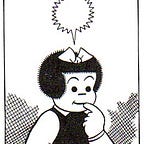You, Yourself, and Your Brand Name
Creating a memorable brand name takes time, patience, imagination, acumen, and a feel for language. It may also require a look in the mirror.
It turns out there’s a connection between personal names and brand names.
And there’s a name for this connection: implicit egotism. And it’s pervasive in ways both subtle and obvious.
Implicit egotism doesn’t mean you’re vain — not precisely, anyway. Rather, it means that you just naturally prefer people, places, and things that resemble yourself. The concept was first named and analyzed in a paper published in 2000 by three SUNY Buffalo professors, who demonstrated the “name-letter effect,” an aspect of implicit egotism that predicts a correlation between people’s first initials and the names of their chosen professions. (I myself know a judge named Jerry, a lawyer named Lindsay, a dentist named Dave, two beauticians named Becky, and a linguist named Lynne. And I am a namer named Nancy.) The preference is consistent across nationality, language, and age.
And it often extends to company and product names.
Over the course of a quarter-century as a name developer, I’ve observed that many founders gravitate toward company and product names that mirror their personal names. The implicit egotism may be sonic — a crisp k sound, a sibilant s — or orthographic, as when the first initial of a founder’s first or last name shows up in the first letter of the company name. The preference is often subconscious; if…
